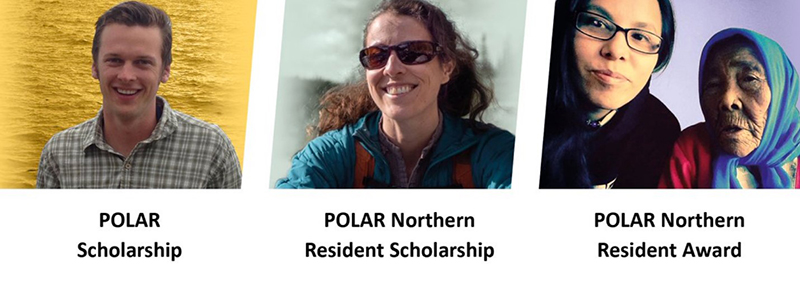POLAR UPdate Issue 16, Fall 2020
- New appointments at POLAR
- Some POLAR research continues despite pandemic
- POLAR staff publish new papers on ecosystem research
- POLAR partners with Canadian Museum of Nature on ice age exhibit
- POLAR at ArcticNet 2020
- POLAR’s Northern Scientific Training Program - helping inspire new northern researchers
- Nominations are open for 2021-2022 POLAR student awards
New appointments at POLAR
POLAR welcomes a new President, a new Chairperson, and three new Members of the Board of Directors, all recently appointed by the Honourable Daniel Vandal, Minister of Northern Affairs.
Ms. Jennifer C. Hubbard is POLAR’s new President and CEO. Ms. Hubbard served recently as Chair of the Board of the NATO Support and Procurement Organization, and as Director General, Labour Relations and Workplace Management at Correctional Services Canada.
The new Chairperson is Mr. Joe Kunuk, Executive Director of the Inuit Circumpolar Council Canada; and Dr. Karen Barnes, Ms. Kimberly Fairman, and Ms. Jacqueline Pepper-Journal also join the Board. More information on the new appointees is available on the POLAR website.
Some POLAR research continues despite pandemic
COVID-19 has had a significant impact on POLAR’s research this year, as arctic science and research are seasonally driven and require field access. Much of the field-based work -- mapping work and field sampling -- that would have required visitors to Cambridge Bay is on hold, and there will undoubtedly be gaps in the long-term data collection required by certain multi-year research and monitoring studies. Some other work, however, has been able to continue, thanks to the efforts of POLAR operations staff and partners in Cambridge Bay. POLAR staff are maintaining a program that monitors lichen growth as well as a permafrost project; and a wildlife monitoring project, operated in collaboration with the Cambridge Bay Hunters and Trappers Organization, is running as normal. Some projects can be completed, and the results published on the basis of data previously collected and ongoing analysis and interpretation; and POLAR scientists and engineers are spending more time reading, writing up results, and organizing and archiving data.
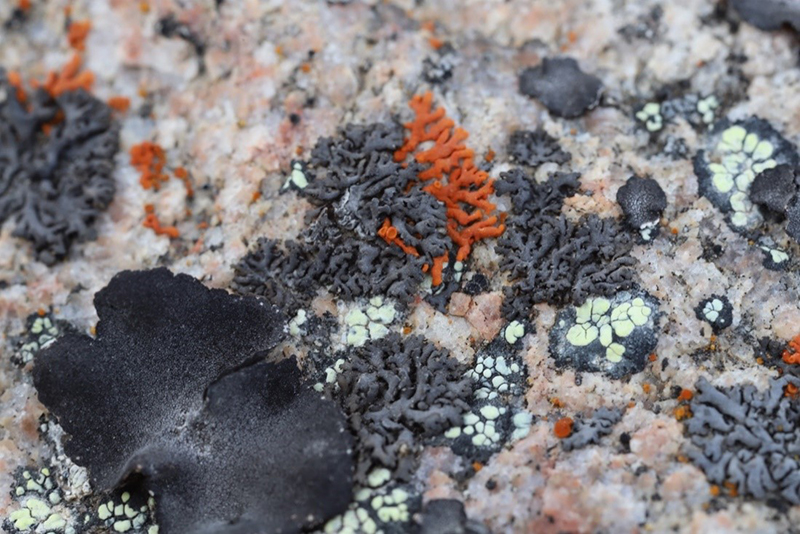
POLAR staff publish new papers on ecosystem research
POLAR ecologist Ian Hogg is a guest editor of a special issue of the scholarly journal Insects that focusses on entomology in the Arctic and Antarctic. Dr. Hogg and POLAR Science Ranger Bryan Vandenbrink also co-authored one of the papers, which discusses POLAR research on the diversity of terrestrial arctic arthropods (insects, spiders, and their relatives). The project combined community-based sampling (collecting arthropods from traps and from soil and leaf litter) with DNA barcoding. The research demonstrated the potential of this approach to overcome the logistic, financial, and taxonomic obstacles for large-scale monitoring of these small creatures, who are critical components of arctic food webs.
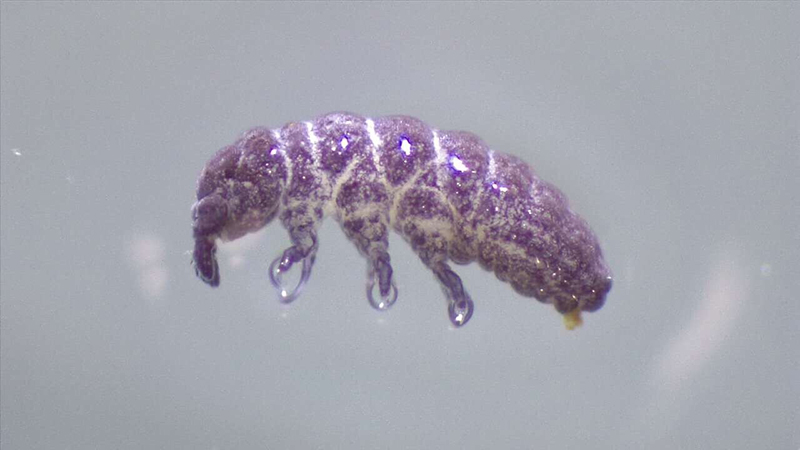
POLAR research veterinarian Matilde Tomaselli has co-authored two new publications: the first, published in Nature - Scientific Reports, discusses the northward advance of two muskox and caribou lungworm parasites, based on years of samples collected by hunters from various Arctic communities, including Cambridge Bay, Nunavut. The second publication, a case report that appears in the Journal of Wildlife Diseases, summarises the diagnostic findings of Dr. Tomaselli and colleagues on a dead muskox found on the land by a Cambridge Bay resident. The investigation revealed that the animal was afflicted by dermatitis caused by a parapoxvirus, and had suffered serious bacterial infection as a result. The case suggested that links between this virus and fatal secondary infections may be contributing to declining muskox populations in the area. Both these lines of research are now continuing through a partnership between POLAR and the Hunters and Trappers Organization of Cambridge Bay (EHTO).
POLAR biologist Jean-François Lamarre is a co-author of a new paper in Science that introduces the new Arctic Animal Movement Archive (AAMA), a massive collection of terrestrial and marine animal tracking studies that range from 1991 to the present. The AAMA provides ready access to data from animal-born sensors -- critical for understanding rapidly changing northern environments -- and gives researchers a holistic view of how animals across the Arctic are responding to the rapid changes occurring there. Using case studies derived from this archive, the paper documents how climate change is influencing animal behaviours such as the timing of eagle migrations and caribou calving.
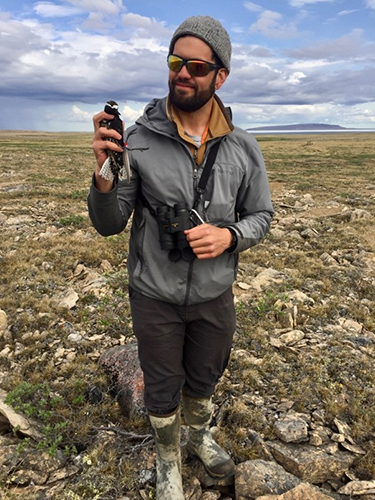
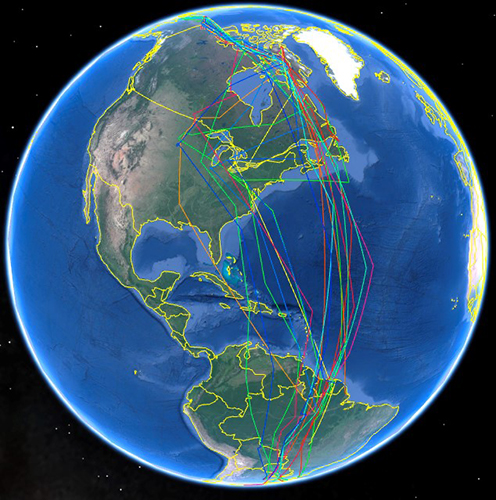
POLAR partners with Canadian Museum of Nature on ice age exhibit
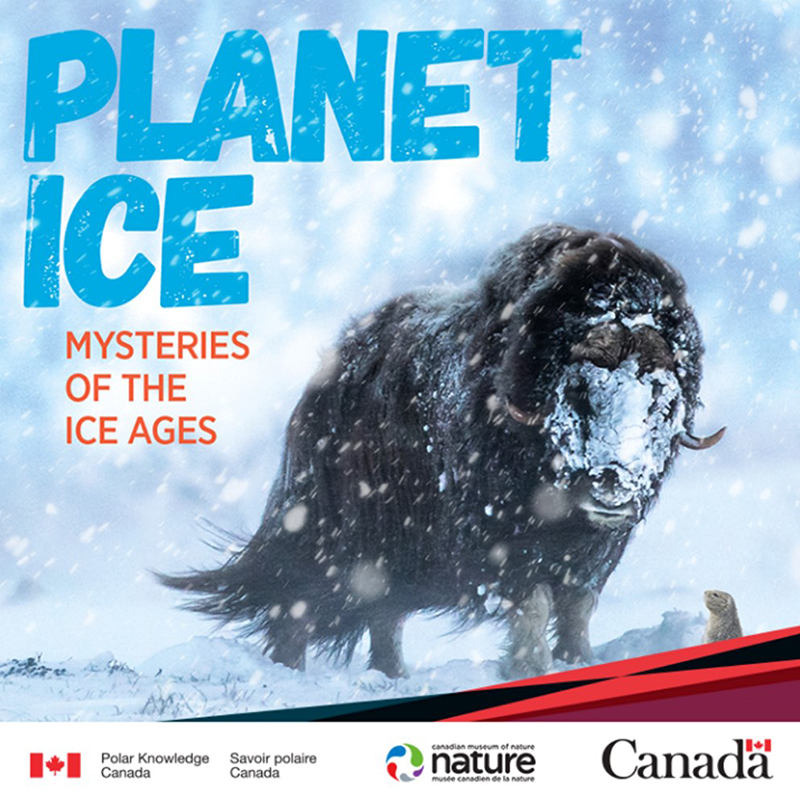
POLAR is proud to be the Presenting Partner for “Planet Ice: Mysteries of the Ice Ages”, a new exhibit at the Canadian Museum of Nature in Ottawa. The exhibit, which opened on October 2, explores how cold and ice have shaped the Arctic’s ecosystems, past and present, as well as the cultures of its peoples and the whole planet’s climate. Through engaging exhibits, multimedia, real specimens, models, and artifacts, the exhibit brings visitors face to face with animals adapted for cold—some long extinct, others still alive today – and lands lost long ago under the world's oceans. Planet Ice also highlights the influence of today’s polar ice sheets and glaciers on Earth’s environments, and how a changing climate is shrinking them – and invites visitors to consider the many ways each of us can help address the problem of climate change.
POLAR at ArcticNet 2020
POLAR staff will share their perspectives and expertise at Arctic Change 2020, ArcticNet’s annual scientific conference (December 7-10). The conference, to be held online this year because of the pandemic, will bring together over 1500 Arctic researchers, northern community representatives, graduate students, and government and industry partners and stakeholders from all fields. POLAR Senior Scientist Dr. Donald McLennan will share his knowledge of the effects of COVID-19 on arctic research as part of a video compilation that will include contributions from members of the arctic research community including researchers, Indigenous partners, and government representatives. Misha Warbanski, policy analyst with POLAR’s Knowledge Management and Engagement program, will co-chair a panel to discuss how new collaborative networks and digital tools could improve access to data relevant to northern long-term monitoring and decision-making.
POLAR’s Northern Scientific Training Program - helping inspire new northern researchers
The Northern Scientific Training Program (NSTP), established by the Government of Canada in 1961 and administered by POLAR since 2015, supports universities in offering students professional research experience in the Canadian North and encourages students to develop a commitment to northern work. The NSTP provides supplementary funding to over 350 students annually at over 35 universities across Canada. Students have now submitted their NSTP applications, through their universities, for the 2021-2022 research season.
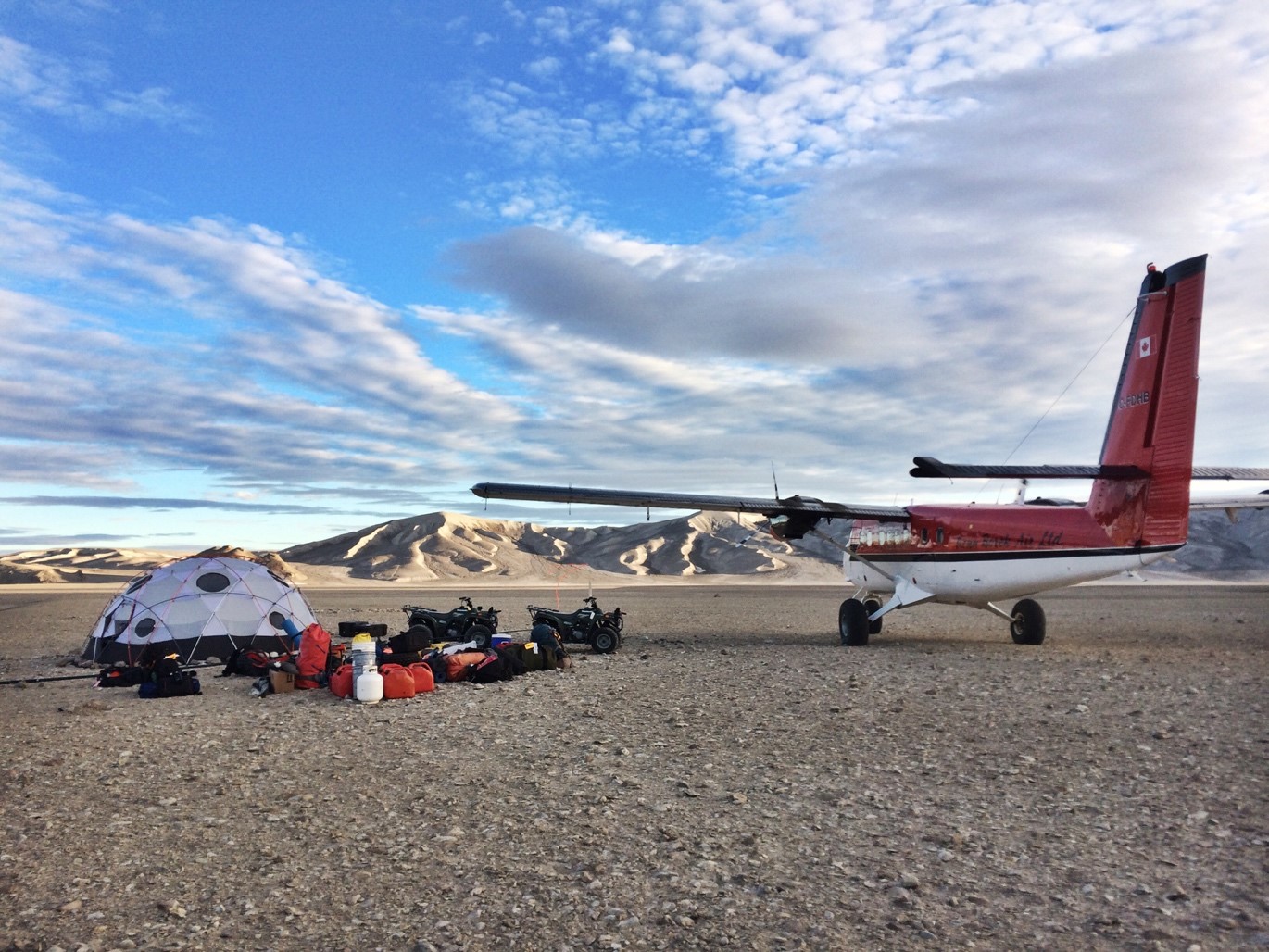
Nominations are open for 2021-2022 POLAR student awards
POLAR’s student awards and scholarships, presented in partnership with the Canadian Northern Studies Trust, recognize excellence in northern studies. Nominations are open until January 31, 2021, for the 2021-2022 awards: the POLAR Scholarship, the Northern Resident Scholarships, and the Northern Resident Awards. For more information visit the website of the Association of Canadian Universities for Northern Studies.
